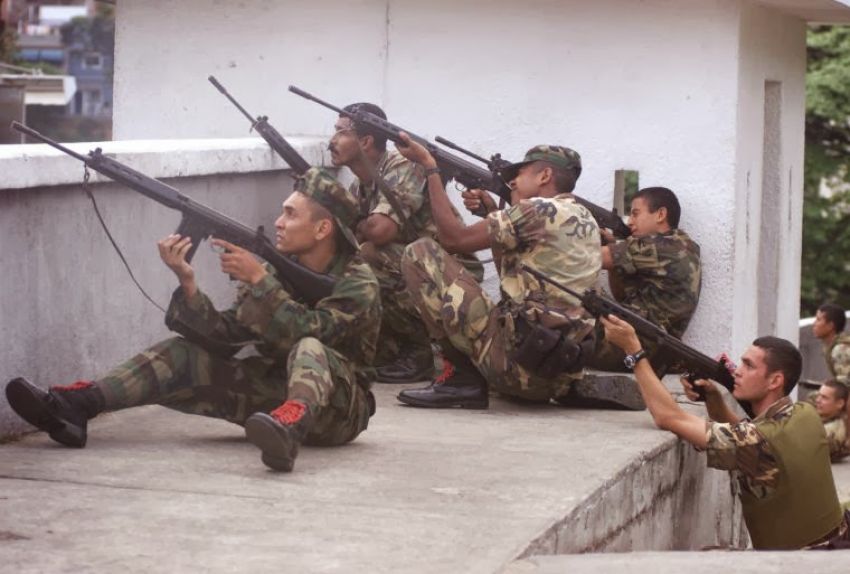
There is a growing body of pro-establishment statements in the United States opposing the possibility of US military intervention in Venezuela, writes Steve Ellner.
The latest expression of this position is a New York Times editorial titled “Stay Out of Venezuela, Mr. Trump”, published on September 11.
At first glance the editorial is a welcome statement that counters the careless war-mongering declarations coming from the ilk of Marco Rubio and a number of high-ranking Trump administration officials, as well as Donald Trump himself.
Certainly, one must applaud the NYT’s decision to come out in opposition to military intervention, and its recognition that similar intervention and support for regime change in Latin America historically — the editorial even makes reference to the Brazilian coup of 1964 — as well as elsewhere in the world has had disastrous consequences.
The line of reasoning of the NYT’s editorial overlaps that of other articles that have come out recently in the establishment media. These include one titled “U.S. Military Intervention in Venezuela would be a Major Mistake” by Robert Moore published the next day in The Hill, as well as the position of the Washington Office on Latin America (WOLA).
The anti-war stand crosses party lines as Moore has served Republican senators, including Tea Party Republican Jim DeMint.
One hint of the limits of this new position is the subtitle of the NYT editorial: “President Maduro Has to Go, But an American Backed Coup is Not the Answer.”
The way the article frames the issue is worrying. The NYT does not question the right of the US to promote regime change. All it says is that a more intelligent approach is called for in regards to getting rid of Maduro.
As an alternative to military intervention, Trump’s pro-establishment critics call for increased sanctions. WOLA, for instance, criticises the Trump administration for increasing the number of Chavistas who are being hit with sanctions, rather than concentrating on a smaller number of leading Chavistas and increasing the penalties against them.
In fact, the issue of sanctions against individuals serves as a cover for the financial embargo that has inflicted considerable harm on Venezuela, as even Reuters recognises.
A valid question is why the NYT has waited until now to adamantly oppose military intervention. After all, then-Secretary of State Rex Tillerson raised the possibility of a military solution as far back as February when he kicked off his six-day Latin American tour in Austin, Texas. He said: “In the history of Venezuela and South American countries, it is often times that the military is the agent of change when things are so bad and the leadership can no longer serve the people.”
The statement was a trial balloon. Trump pushed the idea in subsequent months but the response from right-wing governments was negative.
Latin American nations that form part of the Lima Group rejected the military option. They distanced themselves from Washington by supporting Mexico in its differences with the US on tariffs and the North American Free Trade Agreement.
The NYT saw the writing on the wall and realised that military intervention would not count on the support of Latin American governments, in spite of their hostility to the Maduro government.
The intervention that Trump proposed would be truly unilateral (unlike current military intervention in the Middle East), as Latin American governments would be unwilling to pay the inevitably high political price for supporting a US invasion in the region.
Coupled with Trump’s lack of political capital, a military invasion is unlikely. Talk of it may be designed to encourage dissent and unrest within the Venezuelan military.
The strategy is that by threatening military action, members of Venezuela’s armed forces may put up resistance to Maduro to avoid having to risk their lives in a confrontation against the world’s greatest military superpower.
In any case, if the central argument of the NYT and other members of the “liberal” establishment is that Trump should focus on economic sanctions rather than a military solution, then they are undoubtedly doing more harm than good.